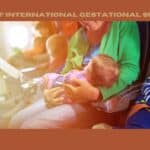Recently, I was tagged on twitter about a blog post entitled “Pro-Life Objections to Induced Pluripotent Stem Cells.” On a number of occasions, especially when I screen our documentary film Lines That Divide: The Great Stem Cell Debate, I am asked the questions this post raises. That’s when I turn to the various experts CBC depends on to vet the science. In this particular instance I turned to my colleague, Dr. David Prentice, who was so kind to offer these helpful thoughts. With his permission, I pass them along to you.
Objection 1- iPSC could be used for cloning.
So could Adult stem cells, or any other cell in the body. As far as the tetraploid complementation (you stick a cell inside a group of cells that have formed the trophoblast layer of an early embryo, and the inserted cell forms the embryo itself) that too could be done with adult stem cells. But the frequency of success at getting a born “clone” is extremely low, similar to SCNT cloning. This is not an argument against iPSC, but how they might be used.
Objection 2- viruses or DNA used in iPSC creation were from fetal tissue.
It’s true that some of the early experiments, and some that continue today, make the viruses in fetal tissue, but that’s not a requirement for iPSC creation. It’s a convenience or preference or habit of that particular scientist. They could just as well have used adult tissue or DNA.
This is an argument against some of the tools, but not against the technique.
Objection 3- iPSC no good for patients.
This one may indeed be true, since like ESC, they like to grow and make tumors. That’s the test used to see if they are pluripotent, if they form a tumor in a mouse. But they could still be useful in lab studies, disease models, drug screening. This is not an ethical argument against iPSC and Adult stem cells are doing the patient treatments now.
Objection 4- iPSC can be used to generate gametes.
Yes, just as ESC have been, though those gametes are questionable in their maturity and function. And in fact, Adult stem cells have also been used to generate gametes.
This is an argument against how iPSC might be used, not a valid argument against iPSC.
Author Profile

- Jennifer Lahl, MA, BSN, RN, is founder and president of The Center for Bioethics and Culture Network. Lahl couples her 25 years of experience as a pediatric critical care nurse, a hospital administrator, and a senior-level nursing manager with a deep passion to speak for those who have no voice. Lahl’s writings have appeared in various publications including Cambridge University Press, the San Francisco Chronicle, the Dallas Morning News, and the American Journal of Bioethics. As a field expert, she is routinely interviewed on radio and television including ABC, CBS, PBS, and NPR. She is also called upon to speak alongside lawmakers and members of the scientific community, even being invited to speak to members of the European Parliament in Brussels to address issues of egg trafficking; she has three times addressed the United Nations during the Commission on the Status of Women on egg and womb trafficking.
Latest entries
 infertilityApril 23, 2024The Rise of International Gestational Surrogacy in the U.S.
infertilityApril 23, 2024The Rise of International Gestational Surrogacy in the U.S. Assisted Reproductive TechnologyApril 16, 2024Founder Jennifer Lahl’s Speech on Surrogacy to the Casablanca Declaration
Assisted Reproductive TechnologyApril 16, 2024Founder Jennifer Lahl’s Speech on Surrogacy to the Casablanca Declaration #BigFertilityFebruary 27, 2024No, Alabama Didn’t Ban IVF
#BigFertilityFebruary 27, 2024No, Alabama Didn’t Ban IVF ArticleSeptember 25, 2023The Little Engine That Could
ArticleSeptember 25, 2023The Little Engine That Could

